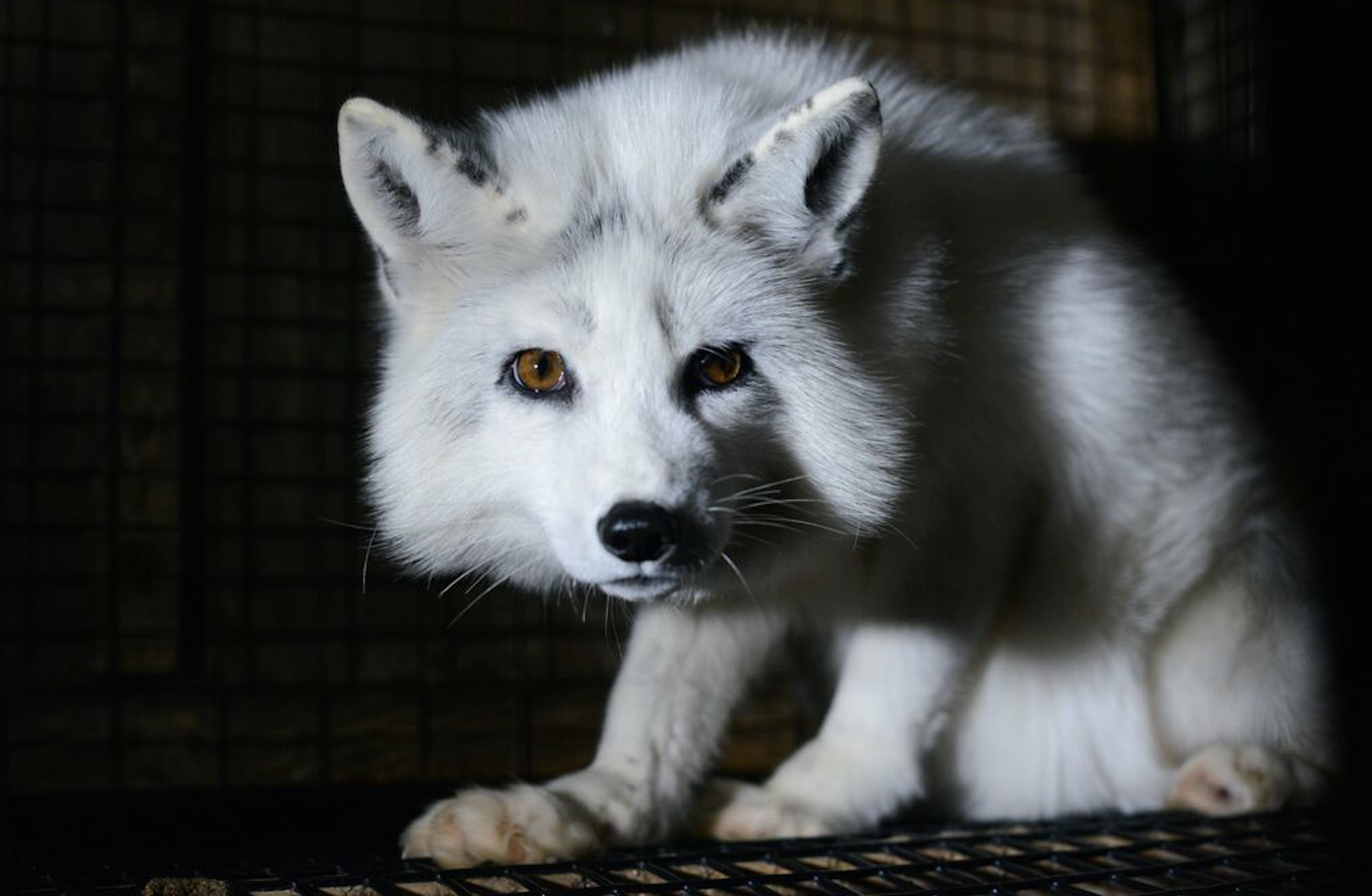Beaten with chains, hung by the neck: Canadian cows left behind by the law

For the first time in Canadian history, three former dairy workers have been sentenced to jail time for malicious animal abuse as a result of hidden-camera footage by an animal protection group.
This landmark decision, handed down by B.C. Provincial Court Justice Gary Cohen comes after undercover video by a Mercy For Animals investigator exposed workers at Chilliwack Cattle Sales viciously kicking, punching, and beating cows and hitting them in the face and body with chains, canes, metal pipes, and rakes.
Three of the company's former staff members have been handed out sentences ranging from seven to 60 days in prison, and all have been prohibited from having custody or control of any animal for between one and three years. They plead guilty.
The harrowing footage revealed a host of other horrors: cows suffering from open wounds, oozing infections, and painful injuries left to languish without proper veterinary care; workers using chains and tractors to lift sick and injured cows by their necks; and workers poking and squeezing festering wounds, ripping clumps of hair out of cows' sensitive tails, and punching bulls in the testicles.
This egregious animal abuse may sound like a case of a few bad apples — but unfortunately, this couldn’t be further from the truth.
A pattern of abuse in Canada?
In the past five years, MFA has investigated 11 factory farms in Canada. The farms were chosen at random, but undercover investigators found pervasive animal abuse at each.
Abuses like those uncovered at Chilliwack Cattle Sales are all too common, but merely scratch the surface. MFA investigations have also revealed sick and injured animals routinely denied proper veterinary care and left to suffer and slowly die by an industry more concerned with profit than animal welfare.
In other words, this isn’t a case of a few bad apples but a rotten tree.
Animal abuse runs rampant at all kinds of factory farms, and the dairy industry is no exception. According to Freedom of Information requests, the B.C. Milk Marketing Board found that more than 25 per cent of dairy farms in B.C. failed to comply with the provincial code of practice for animal welfare over an 18-month period. Inspection reports show many problems, including overcrowding, lame or soiled cattle, tails accidentally torn off by machinery, and branding and dehorning of calves without pain medication.

Loopholes in Canadian code
The Code of Practice for the Care and Handling of Dairy Cattle sets forth certain minimum recommendations for the treatment of cows in the dairy industry. Unfortunately, as it stands now, the code does not carry the force of law in most provinces — and Mercy for Animals' research indicates that Newfoundland and Labrador is the only province where it has been fully implemented into animal welfare legislation.
This is why Mercy For Animals is calling on all provinces, including British Columbia, to give the Dairy Code of Practice the force of law in their provincial animal cruelty legislation, ensuring the dairy industry follows basic minimum standards for animal welfare. With the force of law, the Dairy Code of Practice would at least require sick, injured, and suffering animals to be provided with prompt veterinary care or when necessary, humane euthanasia.
In Thursday’s ruling, Justice Cohen noted that he hadn’t found case law very helpful in his decision:
"[T]here have not been any cases like this one reported in Canada,” he stated.
We at Mercy For Animals hope that his ruling will create the necessary precedent so that animal abuse can be better prosecuted and prevented in the first place.
Current law does not adequately protect cows and other farmed animals from many of the most common forms of abuse and neglect at factory farms. Only the most malicious and sadistic animal abuse is subject to prosecution, and then only if a brave whistleblower comes forward to report it.
We need not only stronger laws to protect farmed animals but also stronger oversight of the industry to prevent abuse.
A moral obligation
Giving the Dairy Code of Practice the force of law would enable law enforcement to hold farm owners and companies accountable for routine abuse and neglect. These powerful entities are ultimately responsible for training and managing workers and setting animal welfare policies, and they shouldn’t get away with scapegoating low-level workers for systemic animal abuse at their facilities.
This most basic of codes must be a proactive obligation under the law, with clear and impartial oversight — and there should be dissuasive fines and penalties for companies that fail to comply.
As a civilized society, it is our moral obligation to prevent cruelty to all animals, including cows and other farmed animals. The most powerful choice that compassionate Canadians can make to help cows is to ditch dairy in favour of healthy and humane plant-based alternatives to milk, cheese, and ice cream. As long as these farms exist, surely the least we can do is ensure animals are protected against the most egregious forms of abuse by giving the Dairy Code of Practice the force of law in Canada.






Comments